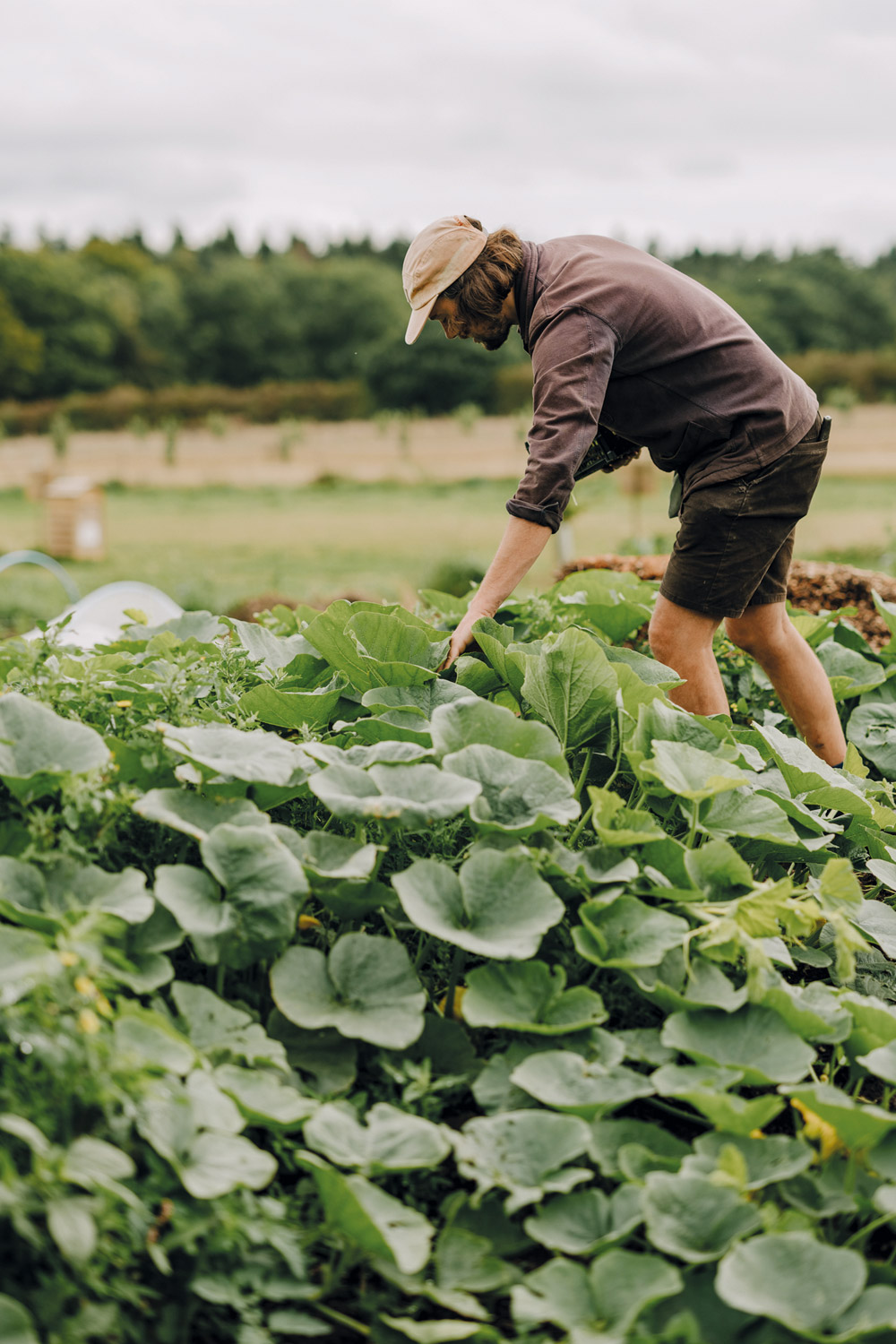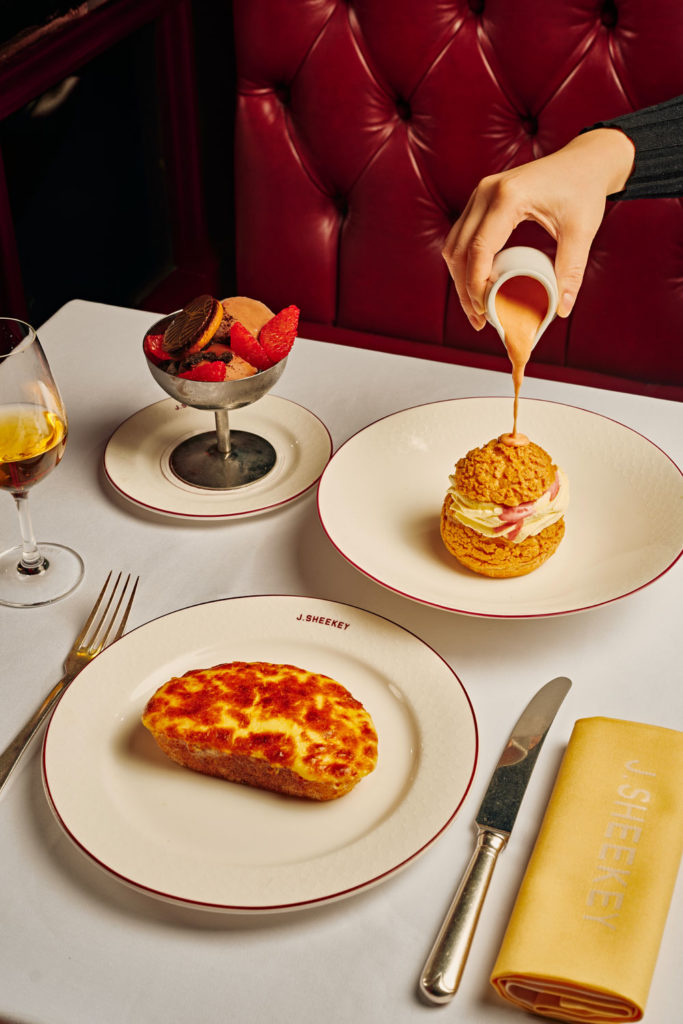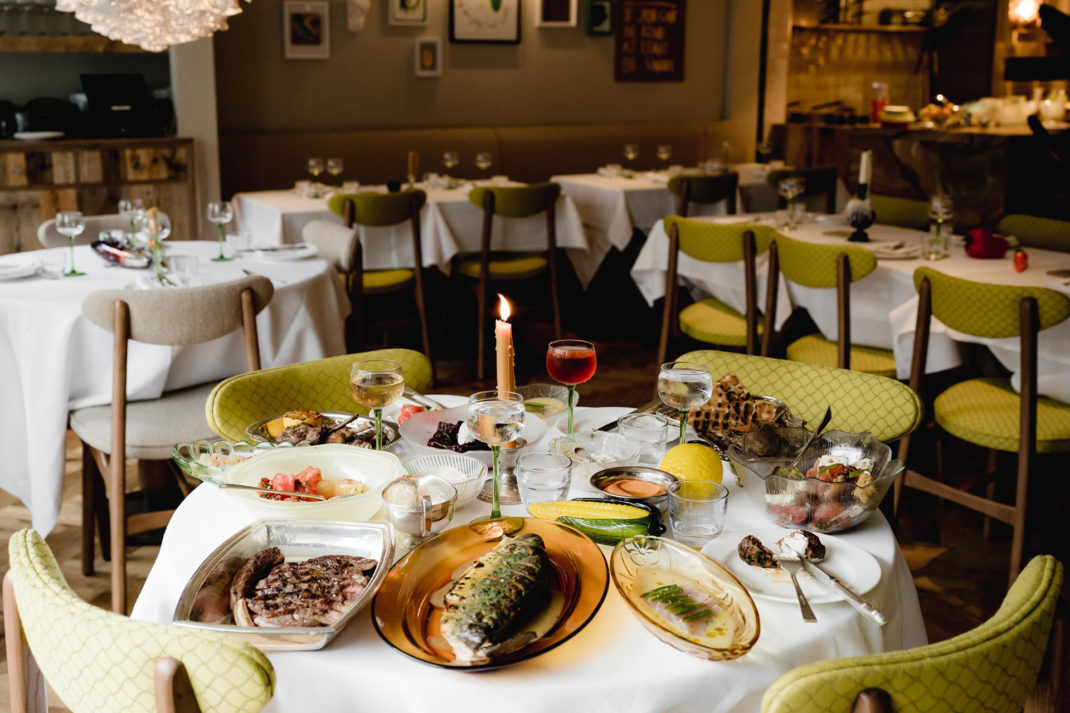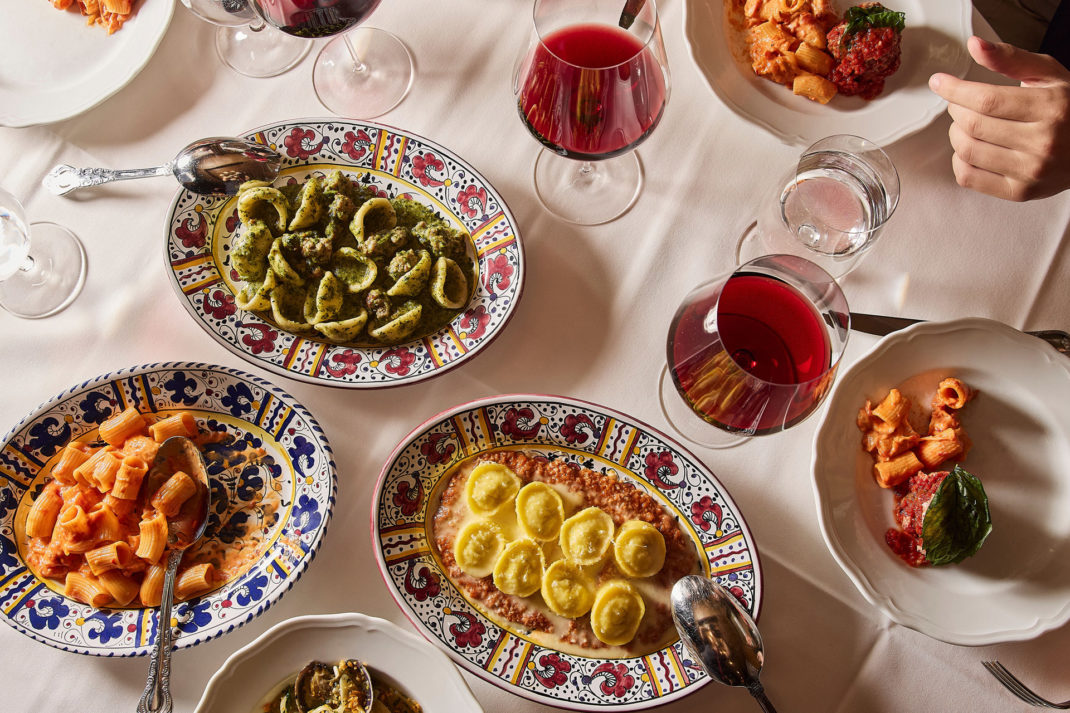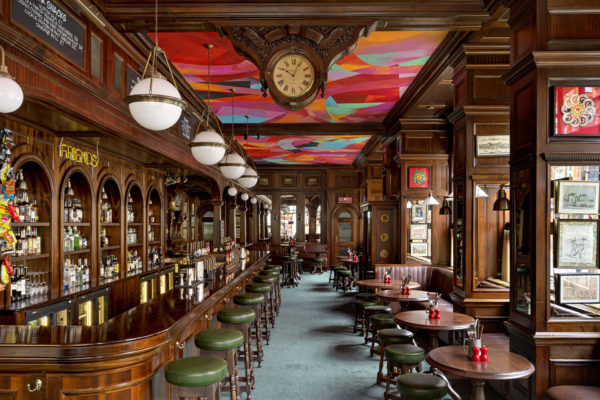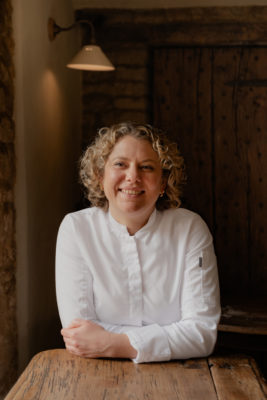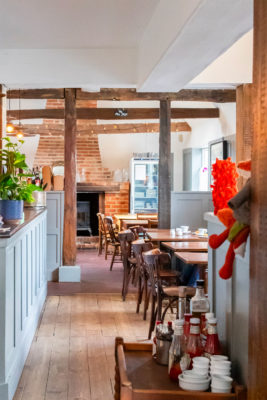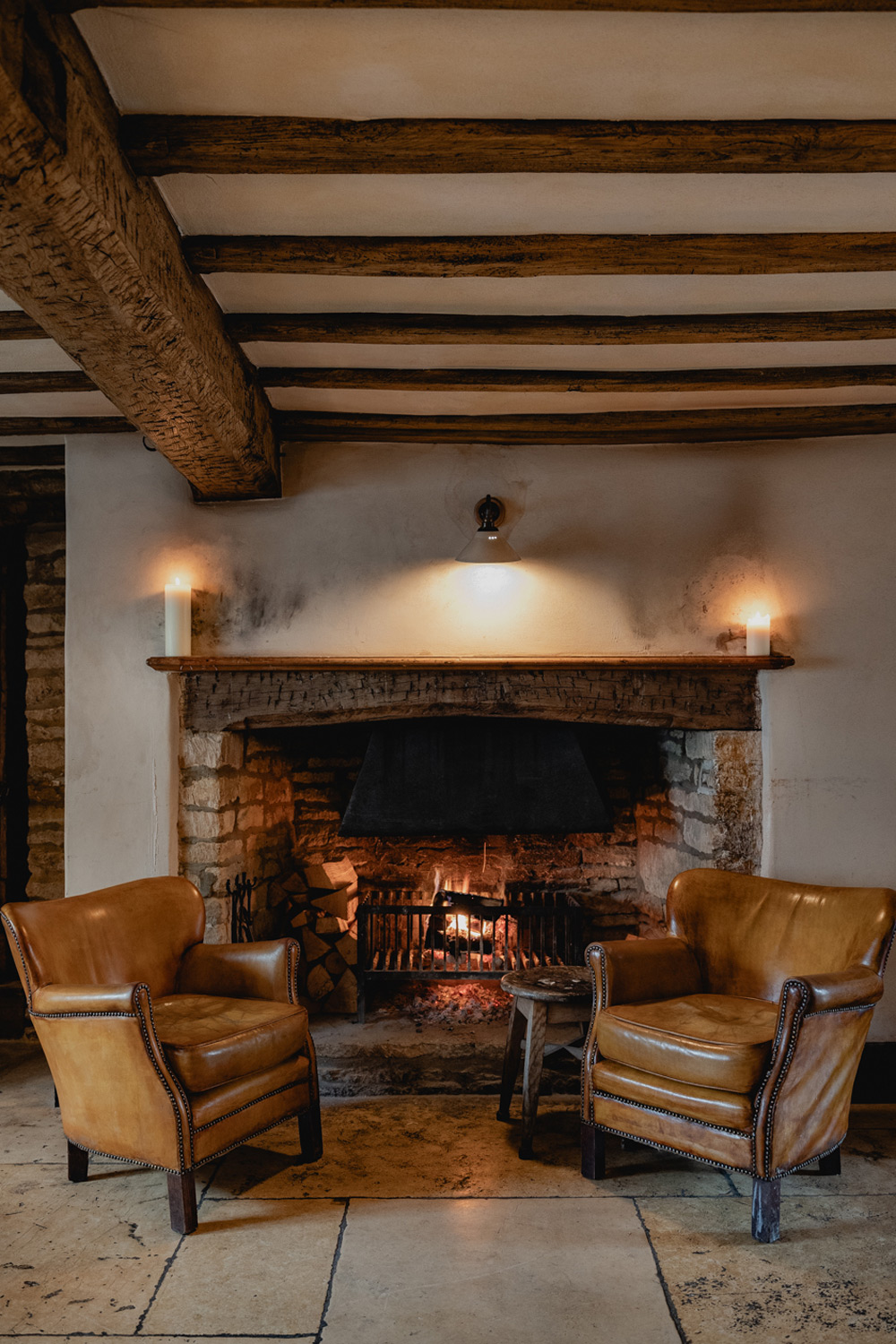
How Public House Created The UK’s Hottest Pub Group
By
3 months ago
From Cotswolds hotspot The Bull to Notting Hill newbie The Fat Badger, everyone is talking about these buzzy gastropubs
In a climate where both British pubs and farming are under threat, three friends are rewriting the rules – growing their own produce, championing small producers and reviving the pub as the true heart of the community, says Fleur Britten
Inside The Rise Of Public House Group
I’m standing in a potato patch in the Cotswolds, admiring some bountiful spud plants nestled in sheep’s fleece. The three varieties – Arran, Cara and Duke of York – are ‘an experiment for George at the Fat Badger’, explains their grower, Thomas Jones. The fleece, which helps the soil retain moisture, is one of the many natural methods Jones uses – as well as ‘no dig’, no chemicals, cover crops and companion planting – to ensure that the three acres here (on which he also grows tomatoes, cucumbers, salads, courgettes, beans, beetroots, peas, kale, squash, herbs, garlic, apples, plums) are farmed regeneratively and organically, albeit not certified.
George Williams – who is head chef at one of the five buzzy and highly acclaimed pubs run by the Public House Group, set up by friends James Gummer, 35, Phil Winser, 41, and Olivier van Themsche, 49 – is some 80 miles away in Notting Hill, but even he has been down to help out. Williams, you see, has been questing for the perfect potato to make Hasselbacks, so after he researched it, Jones grew it on the smallholding, which is run by the friends to supply the five pubs. This is the level of commitment they’ll go to for the perfect ingredients. ‘And when a customer says “these are the best Hasselback potatoes”, the team feels like they were there from beginning to end,’ says Gummer, with whom I’m now drinking herbal tea along with Winser in the cafe at Henry Astor’s Bruern Farms, where they rent the land. (Van Themsche is on holiday.)
The Star Appeal
Winser has driven us to the farm from another of their pubs, The Bull, 15 minutes away in Charlbury, in The Bull’s glossy black Defender. This year the pub was named National Pub & Bar of the Year, and has repeatedly been in the news recently – much to the founders’ distaste – not only for hosting Kamala Harris for dinner before she attended Eve Jobs’ Cotswolds wedding, but also for having allegedly turned away JD Vance because its staff refused to serve him. ‘It’s genuinely just noise,’ Winser shrugs. ‘We don’t get involved in politics or celebrity; we just focus on serving pints and hoping it’s a nice experience.’
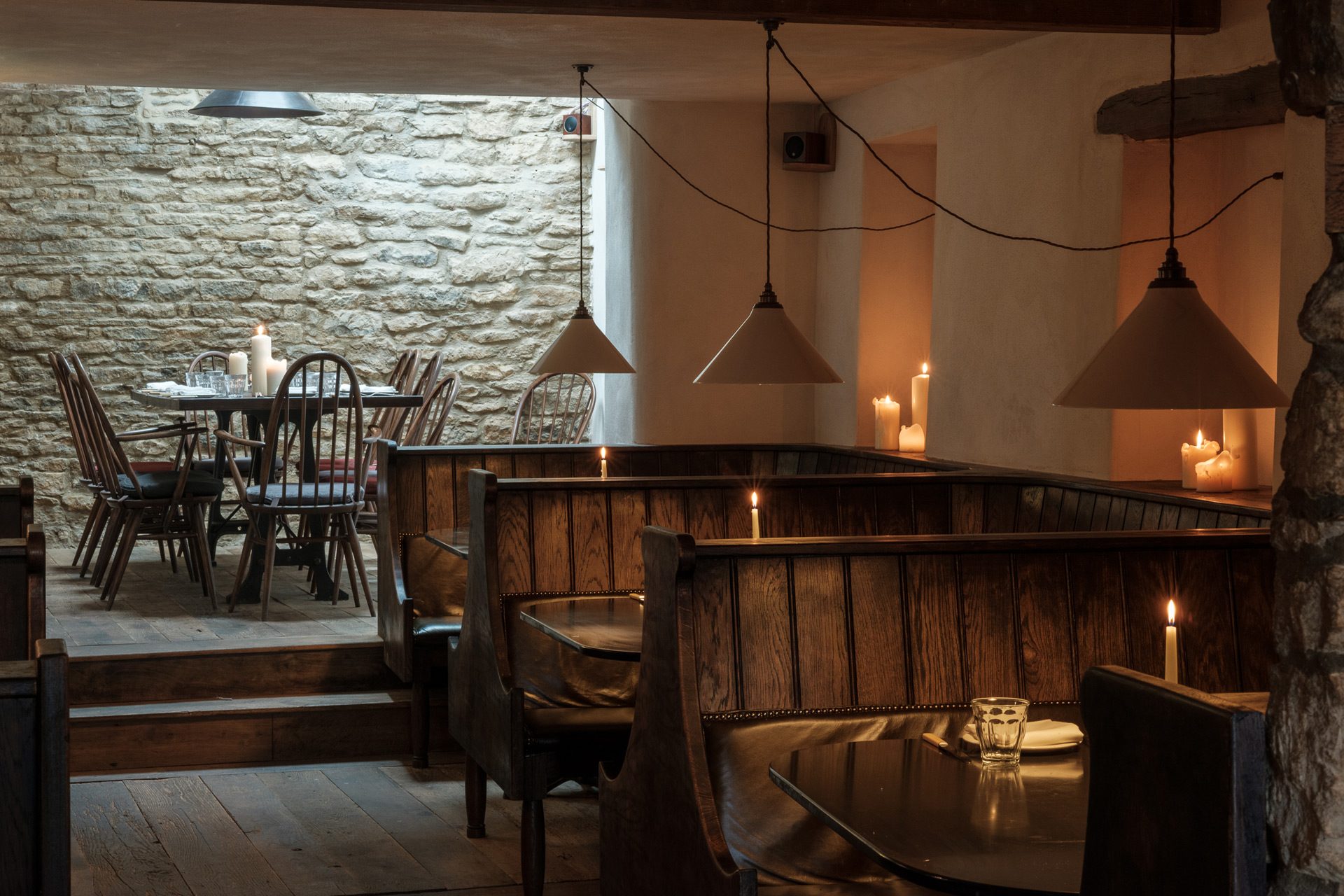
The Bull Charlbury
Their growing pub portfolio also includes The Hart in Marylebone, which opened this autumn, The Hero in Maida Vale, and their OG venture, The Pelican in Notting Hill, opened in 2022; coming next year is The Coach & Horses in Clerkenwell. (The Cotswolds connection is because Gummer and Winser both grew up near Charlbury – Winser was friends with Gummer’s older sister.)
The Farm-To-Table Ethos
Growing their own produce is part of the friends’ bigger, more radical mission, namely to support two struggling British industries – pubs and farming – so that each can help the other. Last year, a record 6,365 agriculture, forestry and fishing businesses closed, according to the Office for National Statistics, while 412 pubs in England and Wales served their last pint (according to Altus Group) – a rise of nearly seven percent compared to 2023. Even Heston Blumenthal is campaigning for the government to help protect British pubs, calling for urgent action with policy and tax reforms.
‘These businesses are disappearing at such a crazy rate,’ says Winser, as he tops up my mint tea. ‘So it’s about how we can connect the two.’ The solution came to him mid-pandemic after he almost bought a farm, having shuttered his sceney restaurant The Fat Radish in New York City (another Covid casualty). His due diligence was epiphanic – Winser realised that the way to make a farm financially viable was ‘to sell direct to restaurants’. So when Winser and Gummer – the latter of whom founded the restaurant 7 Saints – opened The Pelican, with Van Themsche overseeing the finances, the pair went straight to the UK’s ‘incredible’ small producers, who ‘can’t afford to be part of the traditional food distribution system’, says Winser. ‘Buying it direct has a triple effect: it’s great for the bottom line, the food is fresh and tastes really good, and it helps the bigger picture.’
Right from the start, the business partners bought whole animals, explains Gummer: ‘That’s where the idea of mince on toast came from.’ It is ‘by far’ their bestseller, even though it’s made with off-cuts. ‘Isn’t that amazing?’ he adds. ‘People don’t realise that by buying our mince on toast, they’re validating our approach.’
Reviving The Community Spirit
Given the boys’ starry connections – Winser used to date Dree Hemingway; Gummer is son of life peer and Tory donor Peter Gummer, Baron Chadlington; and their venues are frequented by minor royals, former prime ministers and the A-listers du jour – it’s revealing that they’ve focused on the humble pub, not, say, chichi hotels or members’ clubs. But their passion for the British institution seems genuine. ‘Pubs were designed centuries ago to be hospitable, to give people an amazing experience,’ says Gummer. ‘These big corner sites are flagships to the local area – they’re neighbourhood hubs.’
In order to look after their local community, they keep tables free for walk-ins. ‘It’s important to us that you can decide last-minute on a Friday night to go to your local,’ says Gummer. ‘It’s all about building those relationships.’ The business partners are also currently establishing Pub Club, a social enterprise that trains local school leavers on 12-week paid internships, helping them build confidence and get a leg up into the hospitality industry.
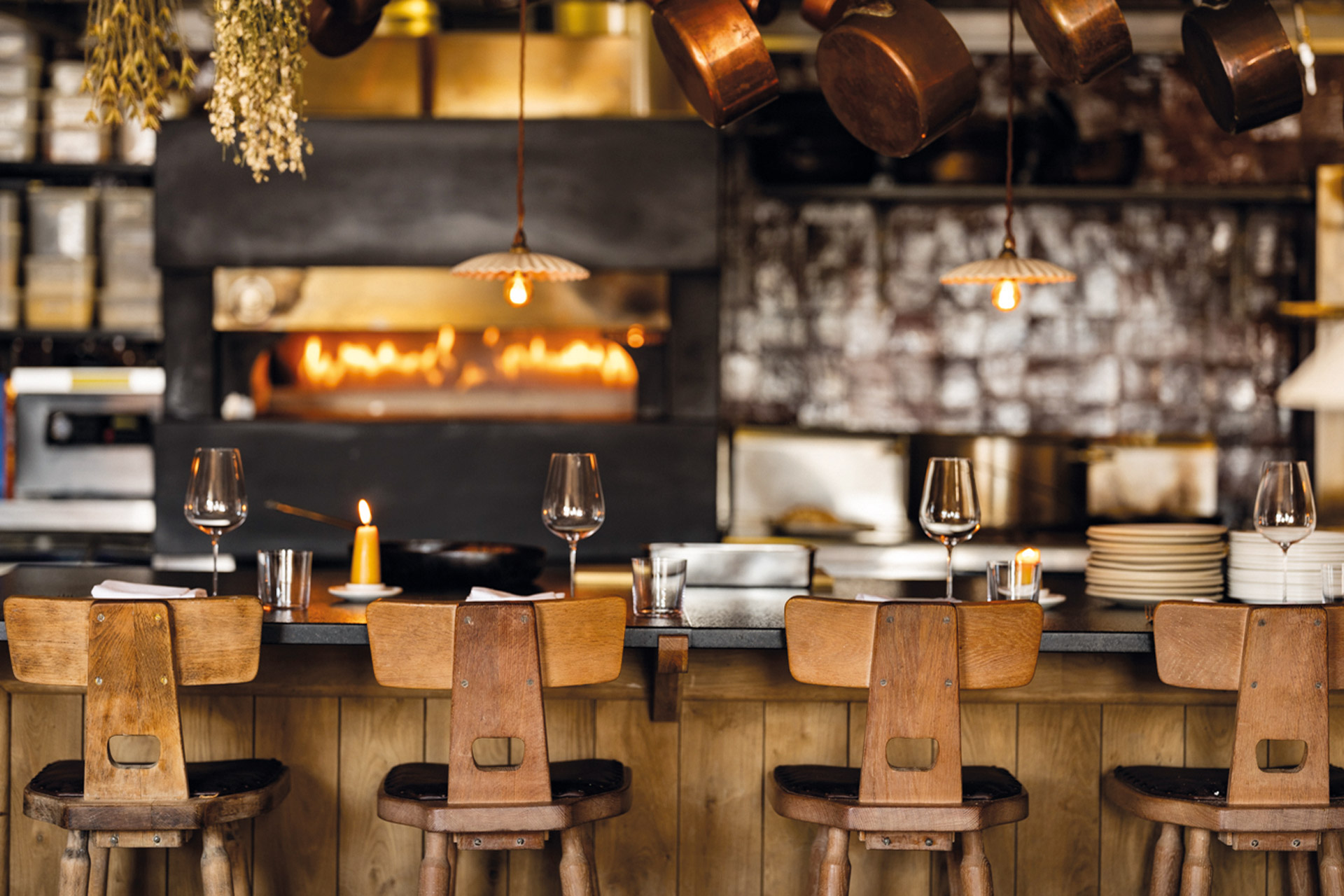
The Fat Badger
In fact, the entire operation seems to be built on relationships as opposed to ego. ‘It’s a team effort,’ insists Winser. ‘You have to let go of ego across the board’ – which aligns with British pub philosophy, where no one is any better than anyone else. Right from the start, their ethos has been only to work with ‘the kind of people we’d want to have a pint with’, Winser adds. ‘We’ve tried to build that into everything we do.’ What’s more, you won’t find egotistical, cheffy fussiness coming out of the kitchen. It’s a beautifully simple, produce-driven menu: for example, at The Bull, lamb sweetbread with slaw, pork chop with crushed peas, sirloin. Robust, homely dishes, cooked so that the ingredients sing, and in portions big enough to share – all very on-message.
Currently, The Bull is the only one of the group’s pubs with rooms, and its ten suites are beautifully decorated with the same philosophy: it’s all about supporting UK manufacturers. The beds are handmade by ‘an amazing metalworker in Somerset’, says Winser, who does all the design himself; the blankets are ‘from an amazing wool mill’; and on the walls is British lime wash: ‘We tried not to use any paint anywhere.’ The decor is pared back, full of natural materials and colours, and incredibly calming – just the thing for unwinding after being in the place to be.
Find out more at publichousegroup.com


